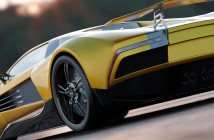Renowned Internet of Things (IoT) speakers share their predictions for the New Year ahead of the world’s largest IoT event, Smart IoT London 2016
We are on the verge of the next industrial revolution spanning across all sectors, powered by the Internet of Things (IoT). Gartner predicts in 2016 that there will be 1.6 billion connected things used by smart cities and even smart tags are now being used to connect Vodafone’s M2M technology, aiding the preservation of UK marine life.
The internet may be what connected us initially; however, it is the IoT that is radically redefining just what it means to be connected, especially for businesses.
The IoT offers enormous potential and will present unmissable, undreamt-of possibilities; it covers so much ground that it needs focus, data and inspiration at its heart. With thousands of buyers and decision makers around the world needing to acquire the technical and business know-how to develop and deploy smart IoT strategies across their technology stack, IoT is definitely a space that requires researching, educating and explaining.
That’s where Smart IoT London 2016 comes in, by bringing together the entire IoT ecosystem in a way that hasn’t ever been done before. A few of the industry pioneers speaking at the event, from all over the world, have shared their predictions for what 2016 will bring to the tech and business world.
Michael Westcott, co-founder of CLoserStill Media, the company behind Smart IoT London, commented: “2016; I think history will show that this is the big one; the point at which the digital revolution becomes truly pervasive and ubiquitous. It’s a year when we have to turn promise into reality and to allow the transformative power of the digital revolution to reach into every corner of every business and offer consumers, businesses, communities, cities and even nations, a range of benefits which even now we can’t fully measure.
“With 5.5 million new devices predicted to connect to the IoT every day in 2016 [Gartner], we expect next year to be the year that the IoT revolution truly takes hold. In 2015, we have started to see ‘wars of standards’ being waged, and in 2016 many of these battles surrounding the future direction of IoT will take place. It’s for this reason that we decided to launch Smart IoT London, to create a forum for leading IoT players to discuss and debate how businesses can unlock IoT’s true potential.
“We are delighted to have such hugely respected experts confirmed for Smart IoT London’s keynotes. Ian, Dr Adryan, Dr Soley, Mike and Andy are all pioneers in their field and will play a key part in driving IoT evolution.”
Ian Moyse, senior sales manager at Rackspace, a Eurocloud UK Board Member and Cloud Industry Forum Governance Board Member, said: “Looking ahead to 2016, we expect to see cloud and IoT continuing to deliver disruptive technologies, often from unicorn companies who are taking on either the status quo of a market or creating a new one.
“Legacy firms are all at risk; size and brand are no longer enough protection to sustain an existing business model if customers find something new and preferable. First mover advantage and today’s incredible speed of market grab enables unknown brands to rapidly become global leaders, like we have never seen before.
“Disruption has already changed the world, with six companies now accounting for 53% of the NASDAQ’s $664 billion market value (Amazon, Google, Apple, Facebook, Netflix and Gilead). In 2016 we can expect to see increased innovation and disruption throughout the year and beyond, as we are entering a time when legacy approaches will not only be viewed as slow, but often as totally impertinent.
“Organisations need to rapidly become agile and become more receptive to enable business at the speed of technology and those that stagnate are at risk of being displaced as many others already have been!
“Business needs to uncouple themselves from old processes, mind sets and technologies, and embrace what is now possible to better serve external and internal customers. As we have seen with disrupters such as Netflix, Uber, Airbnb, Justeat and Bitcoin, customers are increasingly open to new, more efficient approaches, and providers are finding new ways to monetisation. From subscription-based models through to freemium services, being monetased from the suppliers on the system or the value of the data mining capability the service provision gains for them (take Shazam as a case in point).
“Customer service and delivery are now king, and with the IoT we will see creative leverages being applied. For example, imagine a fridge that can automatically order food for you, being provided free by a retailer on the basis that it is tuned to only order replenishment products from them, or a device that monitors your driving route, and time of day, and rewards you with discounts on your car tax for avoiding peak roads at peak times. The possibilities are endless now that the barriers of technology and affordability have been removed.
“We are entering a time when accepting legacy approaches, processes, platforms and brands will be challenged by the necessity to survive and by millennials entering businesses with no emotive ties to the past.”
Mike Weston, CEO at data science consultancy, Profusion, noted: “More and more businesses are likely to start experimenting with wearable, smart city and IoT tech in 2016. The IoT has applications for many different industries including retail, marketing, healthcare and the public sector. These industries and many others will begin to wake up to the opportunities offered through using IoT tech.
“If the IoT does gain widespread adoption, there comes a host of issues with securing consumers’ data. At the moment, it is generally considered that innovation is outstripping the security of IoT devices. These could become rich pickings for any hackers, should one of these devices become commonplace in every home.
“The IoT has the ability to produce scores of data on each user. This is both a blessing and a curse. The data produced through IoT devices will allow business to create better targeted ads, more informed products and be better at resourcing. But, there is a risk that if businesses get too personal in their collection and analysis of data, there will be a public backlash. What each business will need to understand when using data produced by the IoT, is that each individual has a certain tolerance for ‘creepiness’ and businesses must not exceed that.”
Andy Mullholland, Constellation Research vice president and analyst for Digital Business, concluded: “It’s only because of IoT that we have Uber and other innovative apps; 2016 is the year when most people realise that IoT is not about a few sensors doing simple things, such as indicating the towel dispenser is empty.
“Some people will understand that IoT is not the web, but a whole new layer of capabilities using internet connectivity; a lot of people who are not in the IT department will find and introduce some really compelling business disruptions in the market; smart people will realise that their smart phones are personal IoT sensors and figure out new apps.
“However, 2016 is also the year when the hype cycle down curve will hit, as the huge numbers of devices predicted to be connected moves to sensible numbers. The real challenge in IoT deployment of the ‘final mile’ becomes all too visible, with IT blocking many schemes through unidentified concerns about security.”





